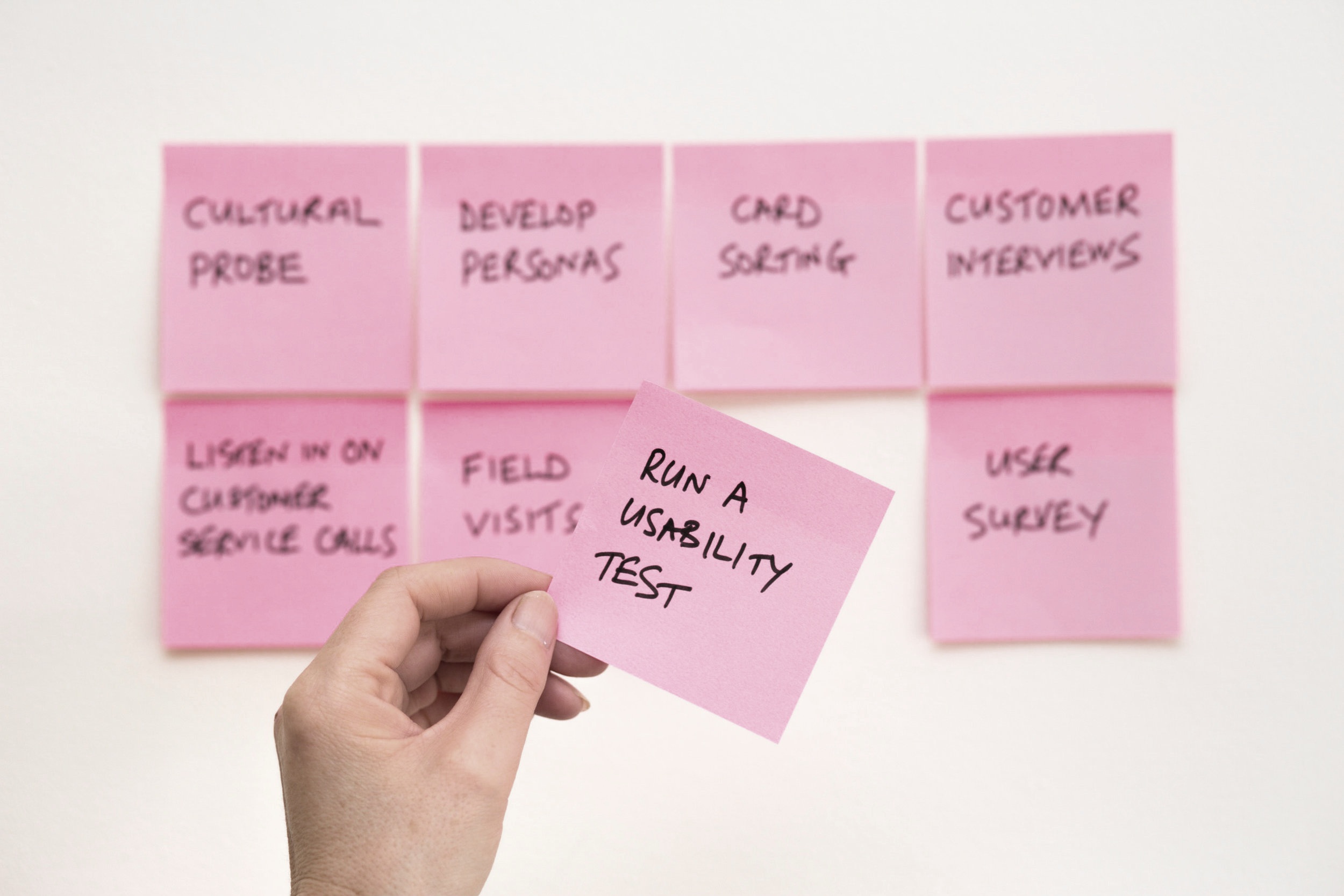18 IELTS Tips And Tricks To Get Band 7 Or Higher
Yana Immis
Tip#6 Speak English at least 30 mins per day out loud. Tip#16 🤐 If you can, take a seat in the first three rows. Read the whole list of advices here. Read more advices below and practice, practice, practice!
IELTS Basics
IELTS (International English Language Testing System) is the most popular and widely accepted English test (among others: TOEFL, Cambridge Advanced Certificate, PTE, etc.) IELTS test was created to assess the English language proficiency of non-native English speakers. The scorecard contains the test taker’s photo, nationality, first language and date of birth. The test is officially accepted by more than 9000 organizations worldwide as a means of measuring language proficiency. More than 3 million people from 140 countries take IELTS test every year.
If you are planning to work in the English language or to take up a study course at an international university, this article is for you. This post is focused on the most relevant to studying abroad IELTS: The Academic IELTS. If you haven’t studied in the English-speaking program prior to your relocation, you may be required to take this test.
You will often hear false advice about IELTS. Don’t listen! Myths about the difficulty of the test are not true. Instead, prepare for the test, improve your English, and follow the tips at the end of the article. Successfully passing the test will minimize your visa risk as well as the risk of not being understood abroad.
The test can be taken up to 48 times a year. If you take a test and do not perform well, you can retake it without any delay or limit on retakes. An IELTS result will be presented in 9 different scores from ‘band 0’ – ‘no show’ to ‘band 9’ ‘native speaker level’. IELTS 7.0 is the ultimate goal for the majority of international students. To get selected for your dream university abroad, score well in the test. A score of IELTS 7.0 or 7.5 is evidence that your English is good enough to join any university across the globe, even elite Ivy League institutions.
| IELTS | TOEFL | CEFR Level |
|---|---|
| 9 – Expert User | 118-120 | C2 |
| 8 – Very Good User | 110-114 | C1 |
| 7 – Good User | 94-101 | C1 |
| 6 – Competent User | 60-78 | B2 |
| 5 – Modest User | 35-41 | B1 |
| 4 – Limited User | 0-31 | B1 |
| 3 – Extremely Limited User | A2 |
| 2 – Intermittent User | A1 |
| 1 – Non User | A1 |
| 0 – Did not attempt the test | - |
The structure of the modules is as follows:
Listening – 4 sections; 40 questions, 30 minutes + 10 minutes transfer time (from the answer sheet to the originals)
Reading – 3 sections; 40 questions, 3 long texts, 60 minutes
Writing – 2 tasks, 60 minutes
Speaking – 3 sections, 11-14 minutes
Total: ~ 3 hours.
IELTS Modules
IELTS consists of 4 modules: listening, reading, writing, speaking to test all parts of the language proficiency. For each module, you will receive a grade & the results will be valid for 2 years. The overall band is calculated from the 4 modules and is frequently used in university admission. Some universities also require a minimum in each module.
Listening, Reading and Writing are completed in one sitting. It might happen, that you take the Speaking module on the same day, however, according to the amount of participants (do not be overwhelmed if you have 499 other test takers with you in an auditorium), the conversation with the IELTS examiner can be moved to another day (up to 1 week time).
IELTS Listening
You will be listening to audio recording and putting down your answers into a booklet. There will be four different recordings of the native English speakers, including a range of accents: British, Australian, New Zealand, American and Canadian. The recordings are heard only once.
Examples:
Recording 1 – a conversation between two people set in an everyday social context, e.g. about travel arrangements
Recording 2 - a monologue set in an everyday scenario, e.g. about the surrounding area
Recording 3 & Recording 4 are about educational or training situations
- a group discussion on the different academic topic, e.g. with a teacher and a student discussing a home task’s grading policy
- a monologue on an academic subject, e.g. a university lecture
Your ability to understand the main ideas and detailed information will be tested within 40 questions (multiple-choice, matching, sentence completion, plan/diagram/map labeling, note/flow-chart/summary/form/table comments).
Each section will be accompanied by a short introduction telling the test taker about the situation and the speakers. There will be a brief time to look through the questions.
At the end of the 30-minute session, you can transfer your answers to the answer sheet (10 minutes). Attention: incorrect spelling and grammar mistakes will be penalized with negative points. Do not write more than the maximum number of words required.
Get 30 out of 40 answers correct for IELTS 7.0
Get 32 out of 40 answers correct for IELTS 7.5
IELTS Reading
You will be reading different materials and you will be required to complete a set of exercises for each of the texts. This module will test you on a wide range of reading skills including main ideas hunting, skimming through the text, reading for details, and understanding logical arguments.
Examples:
Section 1 - two or three short texts or several shorter texts, which deal with daily usage. For instance, timetables or notices – things a person would need to understand when living in a foreign country or when enunciating in the English language
Section 2 - two texts in a work scenario: job descriptions, contracts, training materials
Section 3 - one long text about a topic of general interest. The text is generally descriptive, long and complex
All the three different sections with texts sum up to 2,150-2,750 words. The texts are coming from books, journals, magazines, newspapers and online resources written for non-specialist audiences.
Be ready to answer multiple-choice, short-answer questions, identifying information, finding out writer’s views, labeling diagrams, completing a summary with the use of text words and matching information/headings/features in the sentence endings. Be attentive with spelling and grammar once again to prevent from getting negative marks.
Get 30 out of 40 answers correct for IELTS 7.0
Get 33 out of 40 answers correct for IELTS 7.5
IELTS Writing
You will be required to fulfill 2 tasks: 1) describe a diagram and 2) write an essay in the form of a letter or an argument/problem or solution/answer.
Examples:
Task 1 - a graph, table, chart or diagram has to be described in your own words
Task 2 – an argument or a problem must be discussed with your point of view. You may be required to justify an opinion, present a solution, contrast evidence, compare facts, challenge ideas, etc
The Writing assignment has a limit of 20 minutes (150 words) for the 1st assignment as well as 40 minutes (250 words) for the 2nd assignment. Answering with incomplete sentences or with irrelevant to the topic sentences, as well as grammar or spelling mistakes will be penalized. Avoid using bullet points as only full sentences are accepted.
Answer both questions fully, use sophisticated vocabulary, while writing in clear paragraphs, each with a main idea and supporting sentences. Provide an overview and comparisons for Task 1; indicate a clear position and stick to it consistently in Task 2. If you are aiming for IELTS 7.0 or IELTS 7.0 make sure to write error-free sentences.
IELTS Speaking
You will have a conversation with a native speaker at the premises of the Testing Center. Generally, the conversations are kept casual. You are being tested on your ability to communicate on any topic in a random scenario.
Examples:
Section 1 - Introduction and interview (4–5 minutes). You will be asked about your studies, work, family, free time, hobbies & pastimes, computers & internet, etc.
Section 2 – Subject matter (2-3 min). You will be given a task card to talk about a certain topic with 1-minute preparation time for a 2-minute speech with Q&A at the end
Section 3: Discussions (4–5 minutes). You will communicate with an IELTS examiner about different topics, generally from Section 2.
Try to give critical analysis and open answers covering the topic. Speak fluently and at length on any given topic. Make sure to make use of the linking words, connecting your ideas. Refrain from using common and idiomatic vocabulary. If you are aiming for IELTS 7.0 or IELTS 7.0 make sure to speak with error-free sentences with good pronunciation and intonation.
IELTS Tips & Tricks
Save yourself time & money – follow the tips to make sure you score high. Where to start? First of all, do not get overwhelmed by the amount of available information. 3 million people wouldn’t take it on an annual basis if it was impossible. Passing IELTS is not only about how good your English language is, but also how attentive you are while reading the tasks (often the formulation is confusing on purpose) and how fast you are in prioritizing your allocated time during the exam. Before anything else, you need to get yourself familiarized with the test structure and the answer sheet patterns.
Read the structure of the test (above) and learn it
You need to be fully aware of what is coming your way in terms of timing, types of tasks, breaks, expectations. Understand different question types.
Define your learning strategy
Do you learn on your own? You can easily find IELTS mock tests, IELTS tests from the previous years. Check for free courses online or purchase the IELTS test study materials
Do you prefer to learn with a tutor or in a group? Check for the nearest IELTS testing center in your town. There is a myriad of offline and online IELTS classes held individually with a teacher or in groups
Set realistic goals but aim a bit higher!
It is not necessary that you score well for the first time, but you can become better next time. Practice makes perfect. Do mistakes. Understand the reasons for making mistakes to prevent yourself from doing them repeatedly.
Practice every day
Structure your studies according to sections, prioritize your time. Plan and organize yourself for 45 min concentration on studies and 15 min on breaks. Put all the distracting devices aside and turn yourself off from social media. Do not disregard any module. Dedicate as much time for listening, reading, writing and speaking. It is highly advisable to focus on the Writing and Reading modules a bit more because they consequently will contribute to the other modules’ improvement. When you take IELTS sample tests, you will get to understand how much you have learned and at what level you are currently in. Practice multitasking, i.e. listening to the tape, reading the questions and writing down notes for you to be able to formulate the answers afterward.
Read in the English language
Do not know how to read diagonally? You will be able to do that sooner than you think. What to read? Journals, articles, and newspapers. Make sure to be informed of current events and issues. Once you feel comfortable going through a daily newspaper, consider yourself ready. This, consequently, will improve your vocabulary and grammar. Improve vocabulary to use synonyms. Familiarize yourself with them. Repeating words and using simple phrases will get you no extra points and in fact, could only bring you a negative score. Memorize 15 best practice words, phrases, and connecting words and keep them always ready in your head for every situation. This will help you in all the modules of the test. Improve your reading speed. When practicing the reading module at home, set yourself a timer. Do not be optimistic about the time, it runs faster during the exam. Excel in reading first, then you will automatically score higher in IELTS writing exam. The more you understand, the more you can eventually articulate
Speak English at least 30 mins per day out loud
Record yourself and listen to your own voice. If necessary, record yourself on video – the camera doesn’t lie. While listening to this record, you will hear your own pronunciation errors and mistakes. Use this knowledge to improve. If you can, find a native speaker around you to practice. There are a lot of tandem options and applications existing online to find a language partner (to teach you English while you are teaching your native language in exchange) free of charge as well.
Listen to podcasts & watch TV shows
There is plenty of great tv shows, alike F.R.I.E.N.D.S in the original version with the English subtitles. Master it until you no longer need the subtitles. Once you can watch movies without subtitles, consider yourself ready.
Play video games that involve active conversations with your team members in English
Counter – Strike, World of Warcraft, DotA! Switch to the American servers for your own good! It is a sacrifice you do for the IELTS. 😊
Learn the exam approach
In all parts, it is highly recommended to skim through the whole text/exercise first and to highlight the words, which you believe the emphasis will be on. This will help you navigate towards the question-answer later and to subconsciously divide the text into parts. Use question keywords to find the answer. Write an outline for the written answers – and follow it every time. Structured writing gets more points on the written part.
Be attentive and read questions twice
It is a common practice, that an answer can be hidden in the question itself. Read instructions carefully and always look at the example. Do not disregard the sample questions and answers.
Answer exactly what is required
Not more, not less. Do not go off-topic, do not go over the limit. 2 or 3 points for your reasoning is just fine. Do not overdo it. Give just one answer, unless you are specifically requested to give multiple options.
Filter out irrelevant noise
IELTS is about finding relevant answers in the big data volume. The tasks will be long and daunting, but do not let that confuse you – your task is to find the answers to those questions and that’s the only motivation you should have.
Practice transferring answers from the answer sheet to the ‘original’
This also requires time and efficiency in utilizing space.
Recheck your answers if you have spare time
We are all humans and might overlook something. Make logical guesses when unsure. Do not leave things blank. Check your grammar, spelling, and handwriting. If your writing will be confusing it will be marked wrong by default. Your answer may be marked wrong if the structure of your answer is not grammatically correct as well. Less is more! If unsure, use short but precise answers.
Consider IELTS test as a job interview
Sleep well before the test, arrive early enough and put on your best smile and attire.
If you can, take a seat in the first three rows in the listening test
Experience shows those rows have the best audio access. Listen carefully. If you miss out on something, drop it and continue with the future tasks.
Do not be nervous
Keep cool and calm. Get yourself water and chocolate (outside of classroom). Try to maintain normal fluency. If you score well – great. If you don’t – great. Time to rehearse and learn, it is not the end of the world and IELTS has no retake limit.
Be yourself
The more relaxed and yourself you are the more appealing and comfortable the conversation with the IELTS instructor will be.
IELTS Results
After giving the IELTS test, you can expect your result 2 weeks after. Reminder: the validity of your certificate is only 2 years. You need to make sure to be granted admission to a foreign higher educational institution until it expires. You can go ahead and attach IELTS together with your application documents when applying to a school of your choice. It has become one of the mandatory visa requirements as well. Exception: if your previous education was conducted fully in the English language (and you have a proof of that).
The majority of English-taught universities in Germany will consider your application with IELTS overal 6.0 bands (Bachelor) or IELTS overal 6.5 bands (Master).
Already took the test? Contact me to find out which universities you qualify for with your current result.
Still undecided to take the test or not? To be succesful at your plan to study abroad, it is highly advisable to start IELTS preparation not later than 90 days prior to the university application time (collection of documents & agent consultation). Considering most of the universities in Germany have deadlines, make sure to apply prior to these dates. More information about studying in Germany, as well as the list of German universities accepting IELTS may be found in the following links.








